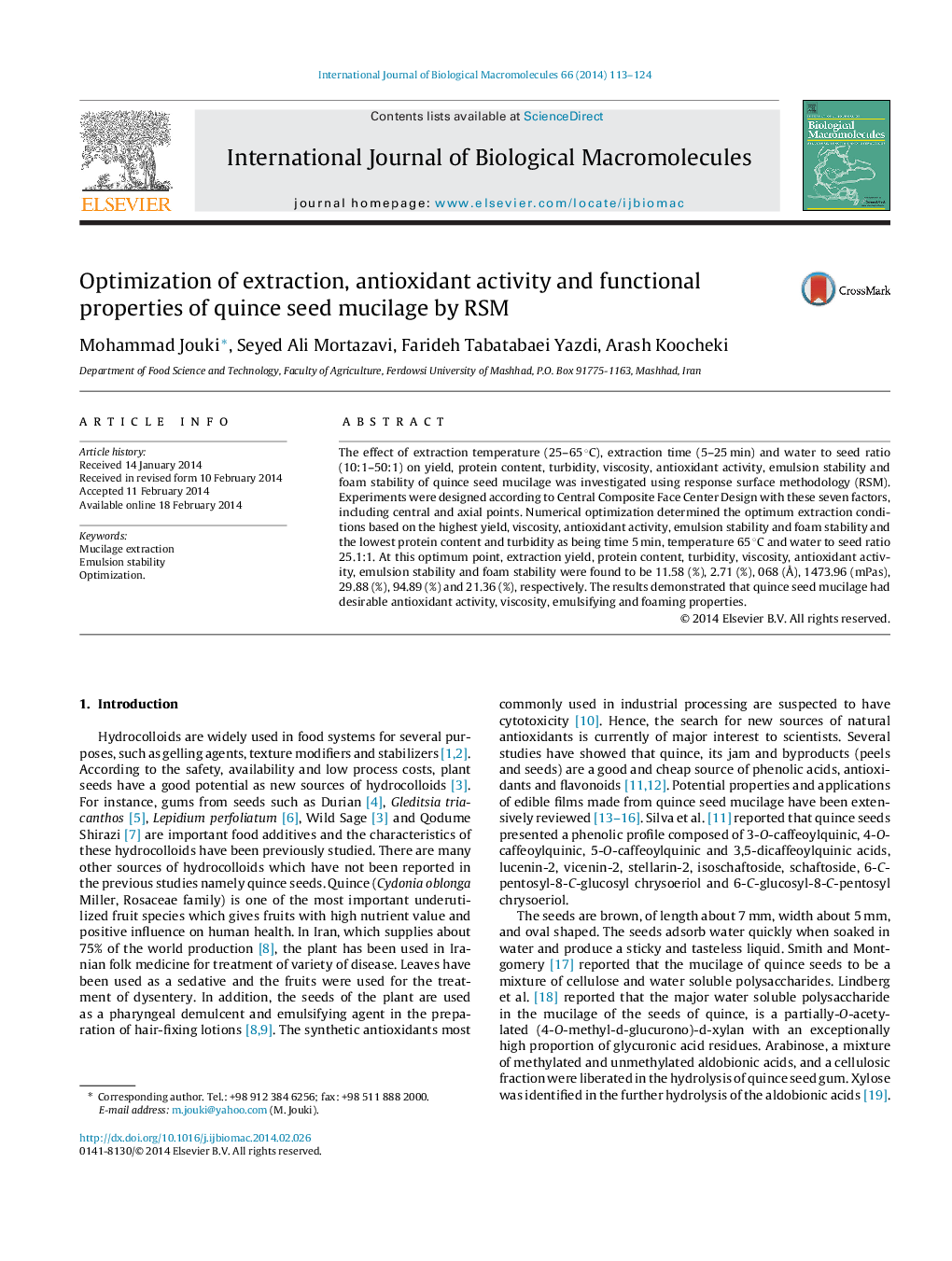| Article ID | Journal | Published Year | Pages | File Type |
|---|---|---|---|---|
| 1986836 | International Journal of Biological Macromolecules | 2014 | 12 Pages |
Abstract
The effect of extraction temperature (25-65 °C), extraction time (5-25 min) and water to seed ratio (10:1-50:1) on yield, protein content, turbidity, viscosity, antioxidant activity, emulsion stability and foam stability of quince seed mucilage was investigated using response surface methodology (RSM). Experiments were designed according to Central Composite Face Center Design with these seven factors, including central and axial points. Numerical optimization determined the optimum extraction conditions based on the highest yield, viscosity, antioxidant activity, emulsion stability and foam stability and the lowest protein content and turbidity as being time 5 min, temperature 65 °C and water to seed ratio 25.1:1. At this optimum point, extraction yield, protein content, turbidity, viscosity, antioxidant activity, emulsion stability and foam stability were found to be 11.58 (%), 2.71 (%), 068 (Ã
), 1473.96 (mPas), 29.88 (%), 94.89 (%) and 21.36 (%), respectively. The results demonstrated that quince seed mucilage had desirable antioxidant activity, viscosity, emulsifying and foaming properties.
Keywords
Related Topics
Life Sciences
Biochemistry, Genetics and Molecular Biology
Biochemistry
Authors
Mohammad Jouki, Seyed Ali Mortazavi, Farideh Tabatabaei Yazdi, Arash Koocheki,
